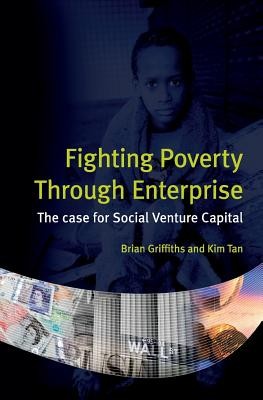
- We will send in 10–14 business days.
- Author: Kim Tan
- Publisher: Anchor Recordings Ltd
- Year: 2007
- Pages: 50
- ISBN-10: 1909886181
- ISBN-13: 9781909886186
- Format: 13.3 x 20.3 x 0.3 cm, minkšti viršeliai
- Language: English
- SAVE -10% with code: EXTRA
Reviews
Description
Nearly 50% of the world's population - almost 3 billion people - live on less than $2 a day. 10 million children die every year from easily preventable diseases. AIDS kills 3 million people every year and 1 billion people lack access to sanitation. About one-quarter of children in poor countries do not finish primary school and some 1 billion adults are illiterate. To date, the debate on tackling global poverty has been dominated by the case for providing more aid. The authors of this booklet certainly believe that foreign aid has a role to play in facing this challenge. However, here they voice the need for greater emphasis to be given to the part that business and enterprise can play in reducing poverty. In recent years China and India have proved dramatic examples of countries which have reformed their economies, opened up to trade and investment, embraced an enterprise culture, and lifted millions of their citizens out of poverty. Griffiths and Tan believe Africa has the same potential as Asia. Micro-credit has been a crucial first step in directly helping the poor escape poverty. Using case studies they argue that social venture capital has the potential to become a new asset class and a critical second step to support the growth of small and medium sized enterprises in developing countries, so creating jobs and reducing poverty.
- Author: Kim Tan
- Publisher: Anchor Recordings Ltd
- Year: 2007
- Pages: 50
- ISBN-10: 1909886181
- ISBN-13: 9781909886186
- Format: 13.3 x 20.3 x 0.3 cm, minkšti viršeliai
- Language: English English
Nearly 50% of the world's population - almost 3 billion people - live on less than $2 a day. 10 million children die every year from easily preventable diseases. AIDS kills 3 million people every year and 1 billion people lack access to sanitation. About one-quarter of children in poor countries do not finish primary school and some 1 billion adults are illiterate. To date, the debate on tackling global poverty has been dominated by the case for providing more aid. The authors of this booklet certainly believe that foreign aid has a role to play in facing this challenge. However, here they voice the need for greater emphasis to be given to the part that business and enterprise can play in reducing poverty. In recent years China and India have proved dramatic examples of countries which have reformed their economies, opened up to trade and investment, embraced an enterprise culture, and lifted millions of their citizens out of poverty. Griffiths and Tan believe Africa has the same potential as Asia. Micro-credit has been a crucial first step in directly helping the poor escape poverty. Using case studies they argue that social venture capital has the potential to become a new asset class and a critical second step to support the growth of small and medium sized enterprises in developing countries, so creating jobs and reducing poverty.


Reviews